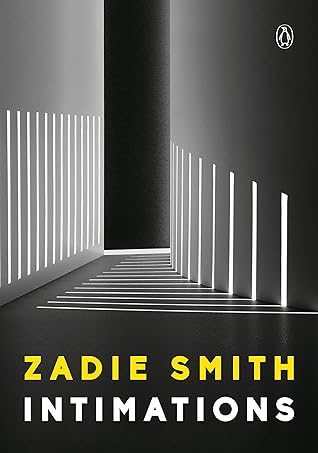More on this book
Community
Kindle Notes & Highlights
It stares you in the face. No role is so well suited to philosophy as the one you happen to be in right now. MARCUS AURELIUS
Writing is control. The part of the university in which I teach should properly be called the Controlling Experience Department.
Funny that just before this book I read Olga Tokarczuk's Drive Your Plow Over the Bones of the Dead, in which the narrator remarks, "In a way, people like her, those who wield a pen, can be dangerous. At once a suspicion of fakery springs to mind--that such a Person is not him- or herself, but an eye that's constantly watching, and whatever it sees it changes into sentences; in the process it strips reality of its most essential quality -- its inexpressibility."
War transforms its participants. What was once necessary appears inessential; what was taken for granted, unappreciated and abused now reveals itself to be central to our existence. Strange inversions proliferate. People find themselves applauding a national health service that their own government criminally underfunded and neglected these past ten years. People thank God for “essential” workers they once considered lowly, who not so long ago they despised for wanting fifteen bucks an hour.
Now I am gratified to find this most honest of phrases in everybody’s mouths all of a sudden, and in answer to almost every question. Why did you bake that banana bread? It was something to do. Why did you make a fort in your living room? Well, it’s something to do. Why dress the dog as a cat? It’s something to do, isn’t it? Fills the time.
The more utilitarian-minded defenders of art justify its existence by insisting upon its potential political efficacy, which is usually overstated. (Artists themselves are especially fond of overstating it.)
The rest of us have been suddenly confronted with the perennial problem of artists: time, and what to do in it.
There is no great difference between novels and banana bread. They are both just something to do.
Katie Garrity liked this
The temptation to overlay the first discourse upon the second is strong: privilege and suffering have a lot in common. They both manifest as bubbles, containing a person and distorting their vision.
But it is possible to penetrate the bubble of privilege and even pop it—whereas the suffering bubble is impermeable. Language, logic, argument, rationale and relative perspective itself are no match for it. Suffering applies itself directly to its subject and will not be shamed out of itself or eradicated by righteous argument, no matter how objectively correct that argument may be.
There is an ideal, rent-controlled city dweller who appears to experience no self-pity, who knows exactly how long to talk to someone in the street, who creates community without overly sentimentalizing the concept—or ever saying aloud the word “community”—and who always picks up after their dog, even if it’s physically painful to do so.
I always tell my students: “A style is a means of insisting on something.” A line of Sontag’s.
The strange storytelling of videoconferencing began between my mother and me, where two or three storylines run concurrently—you catch up on the latest every few days—while you simultaneously stare at your own face, a surreal new advance in human conversation that leads to the self-conscious adaptation of one’s own emotional responses in direct response to how you feel they look aesthetically.
Like a virus, they work invisibly within your body until you grow sick with them. I truly believe that many people are unaware that they carry the virus at all until the very moment you find yourself phoning the cops to explain the race of the man you thought looked suspicious walking through his own neighborhood, or who spoke back to you in Central Park, or whatever the fuck it is.
But I am talking in hypotheticals: the truth is that not enough carriers of this virus have ever been willing to risk the potential loss of any aspect of their social capital to find out what kind of America might lie on the other side of segregation. They are very happy to “blackout” their social media for a day, to read all-black books, and “educate” themselves about black issues—as long as this education does not occur in the form of actual black children attending their actual schools.
That prejudice is most dangerous not when it resides in individual hearts and minds but when it is preserved in systems.
To be never finished thinking, because everything is as infinite as God. To know there is a metaphysics of everything.
As improbable as it often seems, it is possible to act. To lead. To use your imagination to build practical structures that will in some form improve the lives of the people who enter them.


